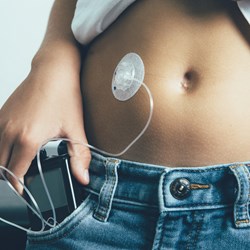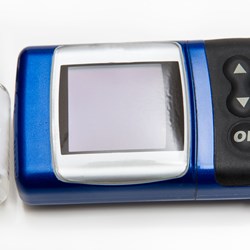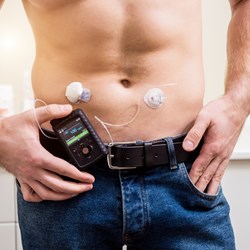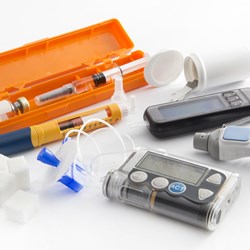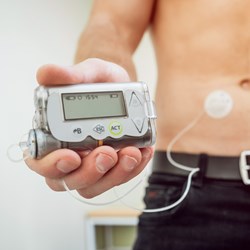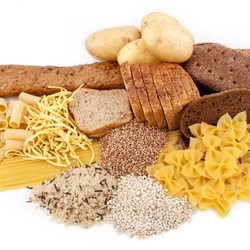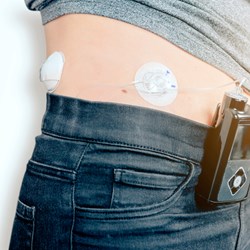Insulin Pumps
Insulin pumps are small electronic devices that deliver insulin continuously day and night through a small tube called a cannula that sits just under your skin (replaced every few days). The small pump (containing a reservoir of insulin) is usually worn on a belt or in a pocket. It delivers a constant background insulin rate, which is known as basal insulin throughout the day. It can also be instructed to deliver rapid or quick-acting insulin, called bolus insulin when you eat.
To find out more about insulin pumps, register for our My Insulin Pump and/or Considering an Insulin Pump? online courses. There is also a list of additional resources about insulin pumps below.
Advanced Search
Resource type -
Language -
Type of diabetes -
An insulin pump is a small electronic device that gives your body the regular insulin it needs throughout the day and night. In this video, healthcare professionals explain what it is and how it works, and people with type 1 diabetes discuss their own experiences with insulin pump therapy.
Mary Robertson talks with Jane Mitchell about her experiences with type 1 diabetes and her decision to use an insulin pump. Jane was diagnosed with type 1 diabetes at age three, and has now been using an insulin pump for six years, having decided to start using one before becoming pregnant with her…
Mary Robertson and Debbie Voight discuss factors which may affect a patient's suitability for an insulin pump.
A brief guide to hybrid closed loop systems, their benefits and disadvantages.
A brief guide to the types of insulin and how long each type of insulin lasts over a 24-hour period.
This resource provides guidance for managing illness when using an insulin pump.
This resource will provide information on the best ways to travel with an insulin pump.
Helpful information for people who use an insulin pump.
Carbohydrate counting is a way of matching insulin requirements with the amount of carbohydrate that you eat or drink. This course will give you everything you need to know about counting carbs.
Flowchart for managing large (high) ketones when using a hybrid closed loop.
The Association of British Clinical Diabetologists (ABCD) sick day flowchart for users of hybrid closed loop.
This mini-module gives an introduction to hybrid closed loop technology and covers what it is, the pros and cons and what you need to consider when choosing a hybrid closed loop system.
